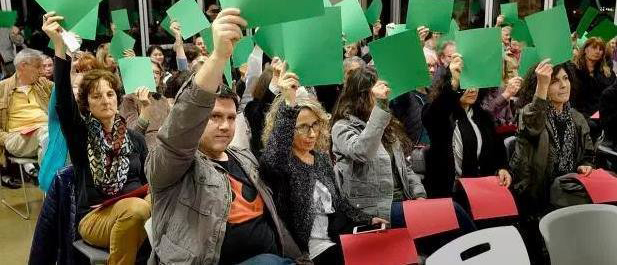
Now that I have set aside my cloak of public office and have returned to the rank of ordinary citizen, it might be useful to consider exactly what some of the responsibilities of citizenship happen to be.
While serving as a councilman, I had the experience of being confronted by confused or angry citizens on many more than one occasion. Often, the confusion or anger was prompted by feelings of being “left out” of the process of decision-making, or feeling uninformed. Frequently citizens would complain that they had “never been told,” or “had never heard,” or “had just found out” about one thing or another. Occasionally this was about a policy decision affecting the entire community, but generally comments like these were voiced in response to an event happening “next door” or “in the neighborhood.” There seems to be an attitude among the citizens that it is government’s responsibility to personally inform each and every interested party about each and every decision that might possibly affect anyone. Notices and articles in the newspapers, mailings to neighbors, postings in the neighborhood; none of these seem to be enough.
Public participation improves the workings of government by making it more responsive and accountable. Most citizens will not regularly attend such meetings, but there are some alternatives. The new cable television channel that will provide live broadcasts of city meetings will help, but those who watch broadcasts cannot participate in the proceedings. Perhaps a “high-tech” public e-mail “feed” during meetings for questions and comments can be implemented. A “low-tech” solution is for neighborhoods to organize committees and find citizens who will regularly attend meetings. Moreover, service clubs, church groups, non-profits and other such organizations can send members to attend and report back to their group about what is going on in Sonoma.
Sustaining citizen engagement in the workings of government has been a long-term problem. The Sonoma Valley Hospital, for example, has been in serious trouble for years; until the recent election, the community had to go begging for people to run for the board. Board seats were often filled by appointment as a consequence of the lack of any candidates whatsoever. Until the issue of a new hospital surfaced, the hospital board meetings were only lightly attended by the public.
The same is true, frankly, of city council meetings, and most commission meetings. In general, it seems Sonoma’s citizens are too busy, disinterested or distracted to pay close attention to government. Some say, that’s why we have newspapers, but newspapers are no substitute for actual participation.
Here’s the point: citizenship requires accepting responsibility for taking action to stay informed and involved. Government will fulfill its legal requirements for meeting notices and postings of agendas, but does not have the resources to do much more. Being an effective and responsible citizen takes effort, but as the old saying goes, “you get back what you put in.” Citizenship is a job we all hold. We can participate in solving the problems and challenges facing our community and help craft “win-win” solutions, or we can sit on the sidelines and blame government for everything we don’t like.
Ultimately, as citizens, whether we choose to be “winners” or a “whiners” is entirely up to us.